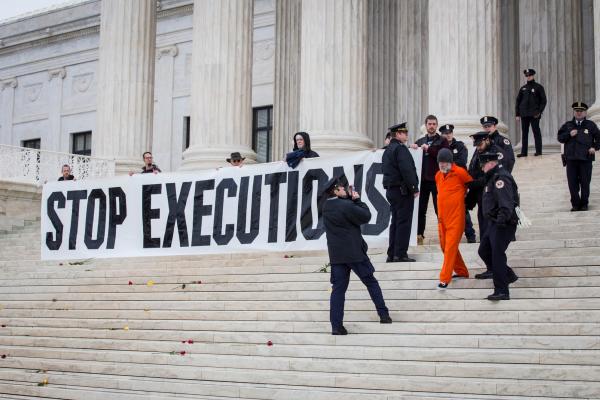Jun 30, 2017
When will the killing end? Why does the government, 31 states and the U.S. Supreme Court, sanction the killing of people who kill to show that killing is wrong? Some 140 countries, including the European Union, and 19 states in the U.S., no longer practice the death penalty. On Jan. 17, 2017, we, 12, along with many others, went to the Supreme Court, the highest Court in the land, to call on the Court and the nation to stop executions.
Read the Full Article

Already a subscriber? Login
